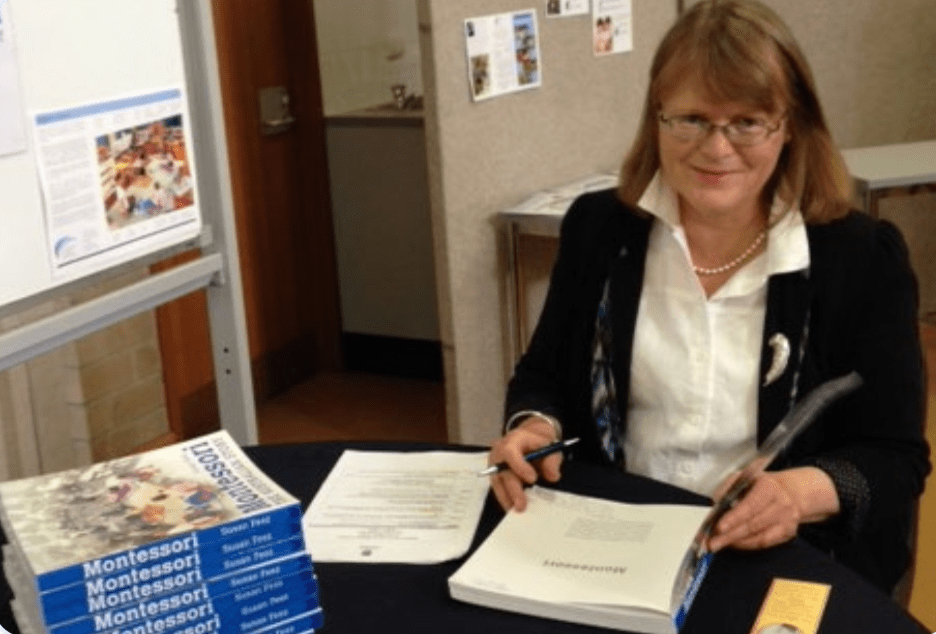Today, encouraging young adult Ezidi refugees in Armidale to aspire to a university education is one of many diverse paths Associate Professor Susan Feez’s love of languages and teaching have taken her.
But growing up, multiculturalism and multilingualism were a long way from her everyday experience.
Living in remote country Queensland, Susan’s early correspondence school lessons were completed at home listening to her teacher on the radio, until she was old enough to ride the several miles to the one-teacher school. There, she had all the books in the school to herself while the teacher was kept busy with the ‘big kids’ who couldn’t see the point of reading for working on the family farm.
When Susan’s uncle and aunt returned from France with her cousin – who was already bilingual at three years old – it was her first experience with a language that was not English, and a culture that was not Australian.
Her experience of the multilingual world continued to expand when she attended school in the city, then school in Germany for several months before studying languages at the University of Queensland.
“There is a lot to love about learning another language and getting to know another culture, including in my case how much learning another language can teach you about your own,” she says.
After training as a teacher of English as a second language (ESL), now referred to as teaching English as an additional language or dialect (EALD), she worked as a teacher of English language for many years in schools and in the Adult Migrant English Program (AMEP) before coming to the University of New England’s School of Education, another perfect fit.
“UNE is one of only a few universities where specialist teacher education in EALD education is still offered, continuing a tradition begun at the Armidale College of Adult Education in the 1970s,” Susan says.
“When my colleagues and I heard that Ezidi refugees were being settled here, and there was concern young adults were feeling left behind without the opportunity for tertiary education, we said to each other, ‘well, we’re the experts in migrant education, what should we do?’”
The program they designed in 2018, sponsored by the UNE Higher Education Participation and Partnerships Program (HEPPP), orients young adults and secondary school students to university study, including aspects of campus life, academic English (in collaboration with the English Language Centre), study skills and setting career goals.
“To date, all participants have emerged from the program aspiring to undertake further education and to build professional careers, like nursing, so they can give back to the community that has been so welcoming,” Susan says.
Susan believes a deep knowledge about language, how it works and how we use it, makes all the difference when teaching any language.
“Studying a Master of Education in Language Education at the University of Sydney was a particularly influential experience for me; it was an innovative program in educational linguistics based on the work of Professor Michael Halliday.
“Applying educational linguistics in English language classrooms was a revelation and Professor Halliday’s insights into language use in social contexts has been an inspiration ever since.”
As well as EALD education and educational linguistics, Susan has also trained as a Montessori teacher. The Montessori approach to early childhood and primary education, first developed more than a century ago, still flourishes around the world today in Montessori classrooms, where children interact freely and choose their own work.
“When the first Montessori early childhood teacher training course ever held in Australia opened in Sydney, I switched from teaching ESL in secondary schools to teaching adult migrants in the evening, so I could attend lectures in Montessori early childhood education during the day,” she says.
“Montessori educators are trained to prepare learning environments filled with beautiful, precisely designed materials that spark children’s interest and motivate learning through activity, while building concentration and self-regulation.”
Susan’s interest in Montessori education, as well as in educational linguistics, has enabled her to experience a wide variety of cultures and languages, including in Bergamo, northern Italy, where she studied Montessori elementary education, and in Hong Kong, where she worked with a team at the University of Hong Kong to develop a multimedia website for local primary school teachers to help build their knowledge about English text and grammar.
As an academic, Susan has enjoyed been able to weave together these educational interests in her PhD and publications. As a teacher, she loves to see them help change lives.
“Observing young children learn in Montessori classrooms is such a joyful and rewarding experience, while teaching people how to use English more effectively, whether to chat to their neighbours, use an ATM, or write an academic essay, can make such a difference in their lives.”



Recent Comments